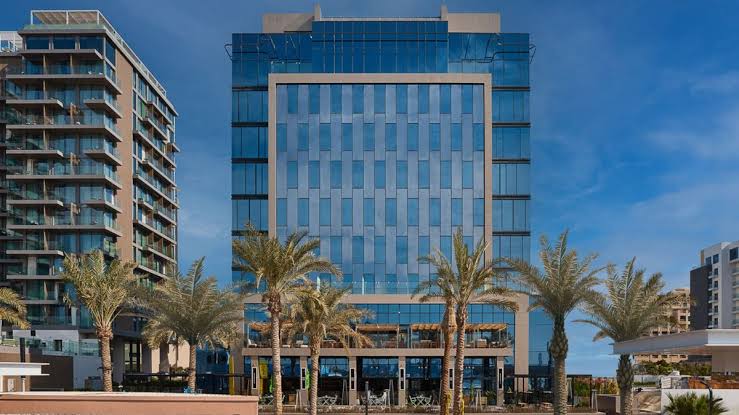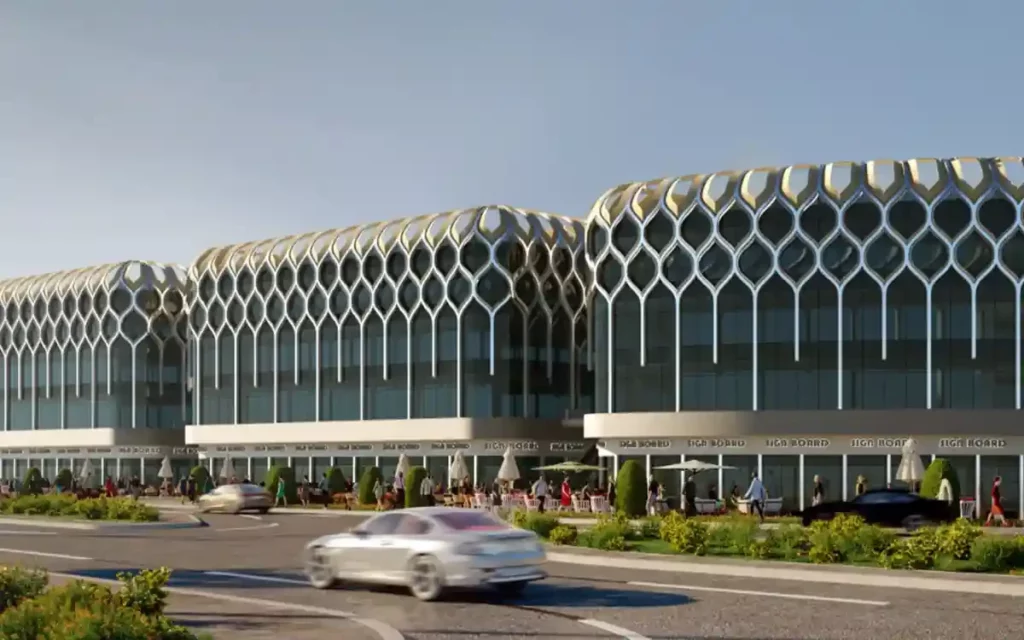The world of real estate development is far more intricate than the physical act of constructing buildings. It is an art that weaves together financial insight, vision, resilience, and the ability to create vibrant communities. Great real estate developers are not just builders; they create spaces where people live, work, and thrive. This article explores the qualities and skills that set exceptional developers apart, showcasing the transformative impact they can have on our cities and lives.
Vision and Foresight: Seeing Beyond the Present
At the core of great real estate development is a visionary approach. Identifying potential in a piece of land or an existing property that others might overlook is a hallmark of excellence. Successful developers think years ahead, visualizing the immediate construction and the long-term value the project will bring to the community. This involves understanding market trends, demographic shifts, and emerging technologies that could shape the future of real estate.
Financial Savvy: The Art of Managing Complexity
A great real estate developer must possess a deep understanding of finance. This goes beyond securing project funding; it includes mastering budgeting, risk management, and navigating fluctuating market conditions. Developers often juggle multiple stakeholders—banks, investors, contractors, and government entities—each with its expectations and constraints. Success depends on creating financial structures that ensure profitability while delivering value to all involved parties.
Resilience and Problem-Solving Skills
Real estate development faces challenges, from regulatory hurdles and zoning restrictions to unexpected construction delays and market downturns. Resilience is key to weathering these storms. Great developers approach problems with a solution-oriented mindset, demonstrating creativity and tenacity in overcoming obstacles. Their ability to adapt to unforeseen circumstances often determines whether a project succeeds or fails.

Strong Network and Collaborative Spirit
No developer works in isolation. Successful projects require collaboration with many professionals, including architects, urban planners, engineers, legal experts, and marketing teams. Great developers excel at forging and maintaining these relationships, leveraging collective expertise to deliver high-quality results. A strong network also informs them about industry innovations and opportunities.
Commitment to Quality and Sustainability
In today’s world, great developers prioritize quality and sustainability. They understand that their projects are not just buildings but lasting contributions to the environment and society. Using sustainable materials, adopting energy-efficient designs, and creating spaces that promote well-being reflect a commitment to responsible development. This enhances the project’s appeal and aligns with the growing demand for eco-friendly real estate solutions.
Understanding the Human Element
A successful real estate development is more than financial success—it’s about its impact on people. Great developers have a keen understanding of human needs and behaviors. They design spaces that foster community engagement, improve accessibility, and enhance the overall quality of life. This human-centered approach ensures that their projects remain relevant and cherished by residents and businesses alike.
Leadership and Visionary Management
Real estate development involves orchestrating diverse teams and navigating complex timelines. Strong leadership skills are essential for coordinating efforts, focusing on the big picture, and ensuring alignment with project goals. A great developer inspires confidence in their team and stakeholders, demonstrating integrity, decisiveness, and a passion for excellence.
Innovative Thinking
Innovation is a critical differentiator in real estate development. Exceptional developers embrace new technologies, such as Building Information Modeling (BIM), modular construction, and smart building systems, to enhance efficiency and project outcomes. They are also open to experimenting with novel concepts like mixed-use developments, co-living spaces, and adaptive reuse of structures to meet evolving market demands.
Community Engagement and Responsibility
Great developers recognize their responsibility toward the communities they serve. They engage with residents and authorities to ensure their projects align with community needs and values. This collaborative approach fosters goodwill and ensures the development integrates seamlessly into the local fabric.
Conclusion
Real estate development is a dynamic and multifaceted field that demands a unique blend of vision, expertise, and resilience. Great developers stand out by constructing impressive structures and creating meaningful spaces that enhance lives and communities. They balance creativity with practicality, profitability with sustainability, and individual ambition with collective well-being. As our cities grow and evolve, these exceptional developers will continue to shape the future, leaving a legacy that transcends brick and mortar.
Whether you’re an aspiring developer or simply someone passionate about urban development, understanding these qualities offers a glimpse into the art and science of transforming spaces into vibrant, thriving places.
Frequently Asked Questions
What are the key qualities that define a great real estate developer?
A great real estate developer possesses a combination of vision, financial acumen, resilience, and strong leadership skills.
- Vision is essential for identifying opportunities others may miss and for planning projects that will succeed in the long term.
- Financial acumen ensures they can navigate complex funding structures, manage budgets, and deliver profitable projects.
- Resilience helps them overcome regulatory hurdles, construction delays, or market downturns.
- Leadership skills enable them to manage diverse teams, inspire confidence, and ensure the project aligns with its goals.
In addition, successful developers are excellent problem-solvers who embrace sustainability and focus on creating spaces that improve quality of life.
Why is sustainability important in real estate development?
Sustainability is critical in modern real estate development for several reasons:
- Environmental Impact: Sustainable practices reduce the carbon footprint of construction projects and conserve natural resources.
- Market Demand: Buyers and tenants increasingly prioritize eco-friendly buildings with features like energy efficiency and green certifications.
- Cost Savings: Sustainable materials and energy-efficient designs can lower operating costs for developers and occupants.
- Regulatory Compliance: Governments implement stricter environmental regulations, and sustainable development helps avoid penalties.
- Brand Value: Developers who commit to sustainability enhance their reputation and attract socially conscious investors and clients.
By focusing on sustainability, developers contribute to a healthier planet while increasing the long-term value of their projects.
What challenges do real estate developers face, and how can they overcome them?
Developers encounter numerous challenges, such as:
- Regulatory Hurdles: Obtaining permits and zoning approvals can be time-consuming and complex.
- Solution: Establish strong relationships with local authorities and hire legal experts to navigate regulations efficiently.
- Market Volatility: Economic downturns or shifting market trends can affect profitability.
- Solution: Conducting thorough market research and diversifying project portfolios to mitigate risks.
- Construction Delays: Weather, supply chain disruptions, or contractor issues can slow progress.
- Solution: Building contingency plans, securing reliable contractors, and maintaining open communication with stakeholders.
- Community Opposition: Local resistance to projects can arise from traffic, noise, or environmental impact concerns.
- Solution: Engaging with the community early, addressing concerns, and demonstrating the benefits of the development.
Resilience and proactive problem-solving are key to overcoming these obstacles.
How do real estate developers identify opportunities for new projects?
Successful developers identify opportunities by:
- Analyzing Market Trends: They monitor demographic shifts, urbanization rates, and economic indicators to find areas with growth potential.
- Understanding Local Needs: Developers assess gaps in the market, such as demand for affordable housing, retail spaces, or mixed-use developments.
- Evaluating Property Potential: They look for underutilized or undervalued properties that can be transformed through redevelopment.
- Networking: Building relationships with brokers, local officials, and community leaders provides insights into upcoming opportunities.
- Innovative Thinking: Great developers often identify unconventional uses for land or structures, such as the adaptive reuse of old buildings.
Thorough research and a forward-thinking approach help them seize high-value opportunities.
What role does technology play in modern real estate development?
Technology is revolutionizing real estate development in several ways:
- Design and Planning: Tools like Building Information Modeling (BIM) improve accuracy and efficiency in designing and planning structures.
- Construction Efficiency: Technologies such as modular construction and 3D printing streamline processes and reduce waste.
- Smart Building Systems: Integrating IoT devices enhances energy efficiency, security, and occupant experience.
- Market Analysis: Data analytics platforms provide insights into buyer preferences, rental trends, and competitive landscapes.
- Virtual Reality (VR) and Augmented Reality (AR): These technologies allow stakeholders to visualize projects during the design phase, improving decision-making and marketing.
By embracing these advancements, developers can increase efficiency, reduce costs, and deliver cutting-edge projects.
How does a real estate developer balance profitability with community needs?
Balancing profitability and community needs requires a thoughtful, collaborative approach:
- Engage with Stakeholders: Developers must consult local communities to understand their concerns and expectations.
- Design Thoughtfully: Projects should enhance the local environment, provide public amenities, and address housing or business needs.
- Focus on Long-Term Value: Instead of maximizing short-term profits, developers should consider the lasting positive impact on the community, which enhances the project’s appeal and value over time.
- Use Mixed-Use Development: Combining residential, commercial, and recreational spaces creates vibrant neighborhoods that benefit everyone.
This approach ensures that projects are profitable, sustainable, and welcomed by the community.












